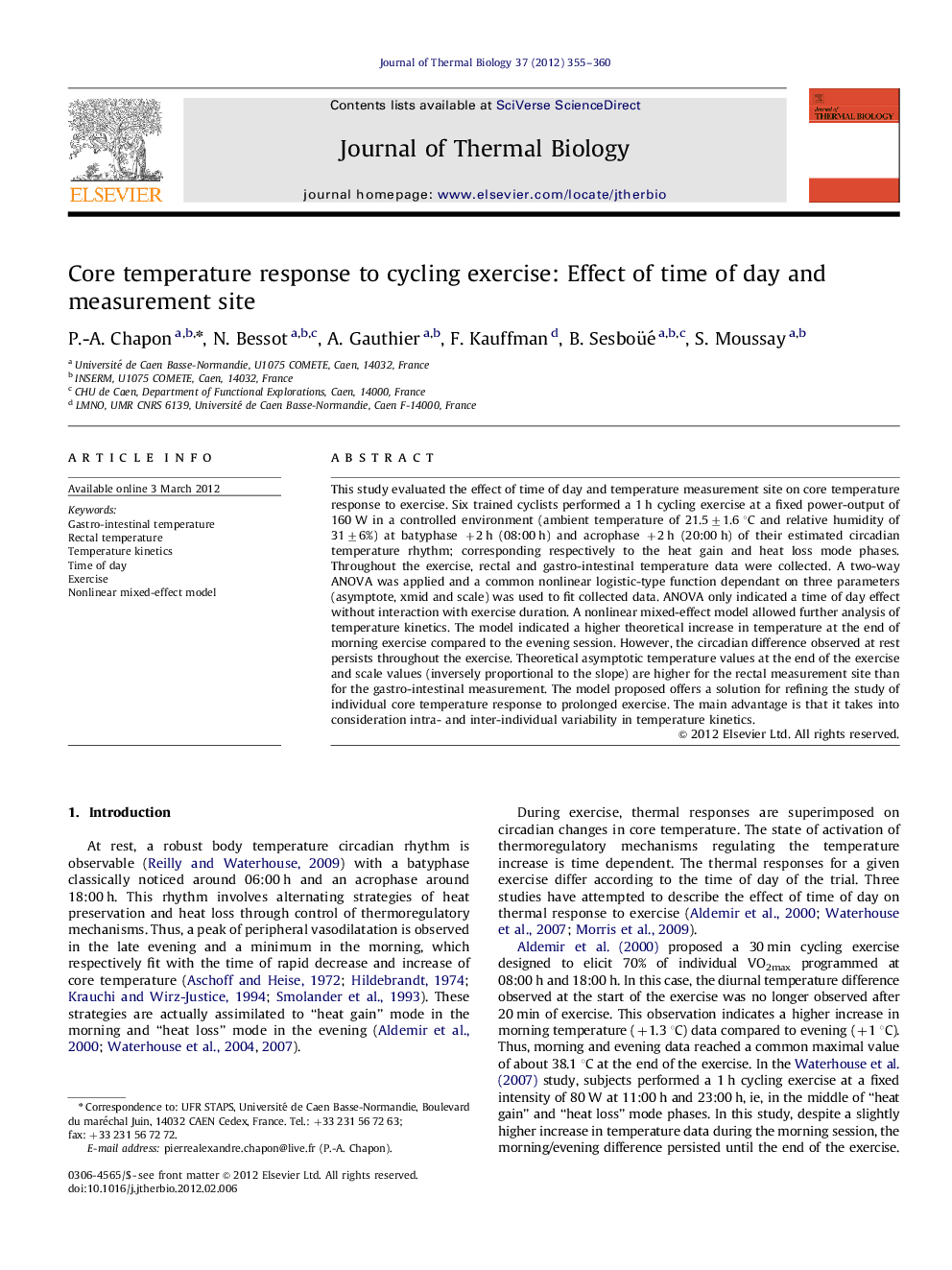| Article ID | Journal | Published Year | Pages | File Type |
|---|---|---|---|---|
| 2843302 | Journal of Thermal Biology | 2012 | 6 Pages |
This study evaluated the effect of time of day and temperature measurement site on core temperature response to exercise. Six trained cyclists performed a 1 h cycling exercise at a fixed power-output of 160 W in a controlled environment (ambient temperature of 21.5±1.6 °C and relative humidity of 31±6%) at batyphase +2 h (08:00 h) and acrophase +2 h (20:00 h) of their estimated circadian temperature rhythm; corresponding respectively to the heat gain and heat loss mode phases. Throughout the exercise, rectal and gastro-intestinal temperature data were collected. A two-way ANOVA was applied and a common nonlinear logistic-type function dependant on three parameters (asymptote, xmid and scale) was used to fit collected data. ANOVA only indicated a time of day effect without interaction with exercise duration. A nonlinear mixed-effect model allowed further analysis of temperature kinetics. The model indicated a higher theoretical increase in temperature at the end of morning exercise compared to the evening session. However, the circadian difference observed at rest persists throughout the exercise. Theoretical asymptotic temperature values at the end of the exercise and scale values (inversely proportional to the slope) are higher for the rectal measurement site than for the gastro-intestinal measurement. The model proposed offers a solution for refining the study of individual core temperature response to prolonged exercise. The main advantage is that it takes into consideration intra- and inter-individual variability in temperature kinetics.
